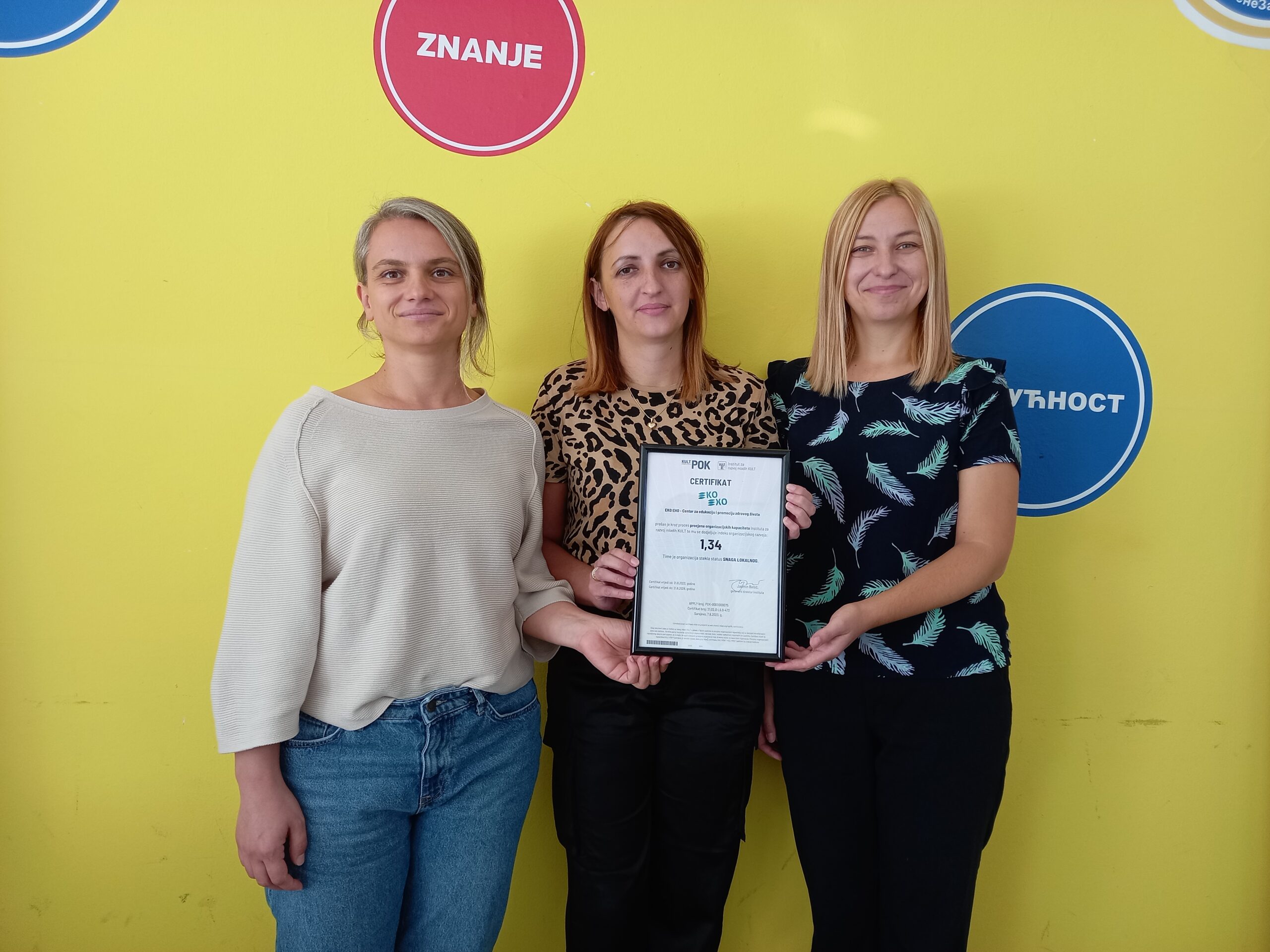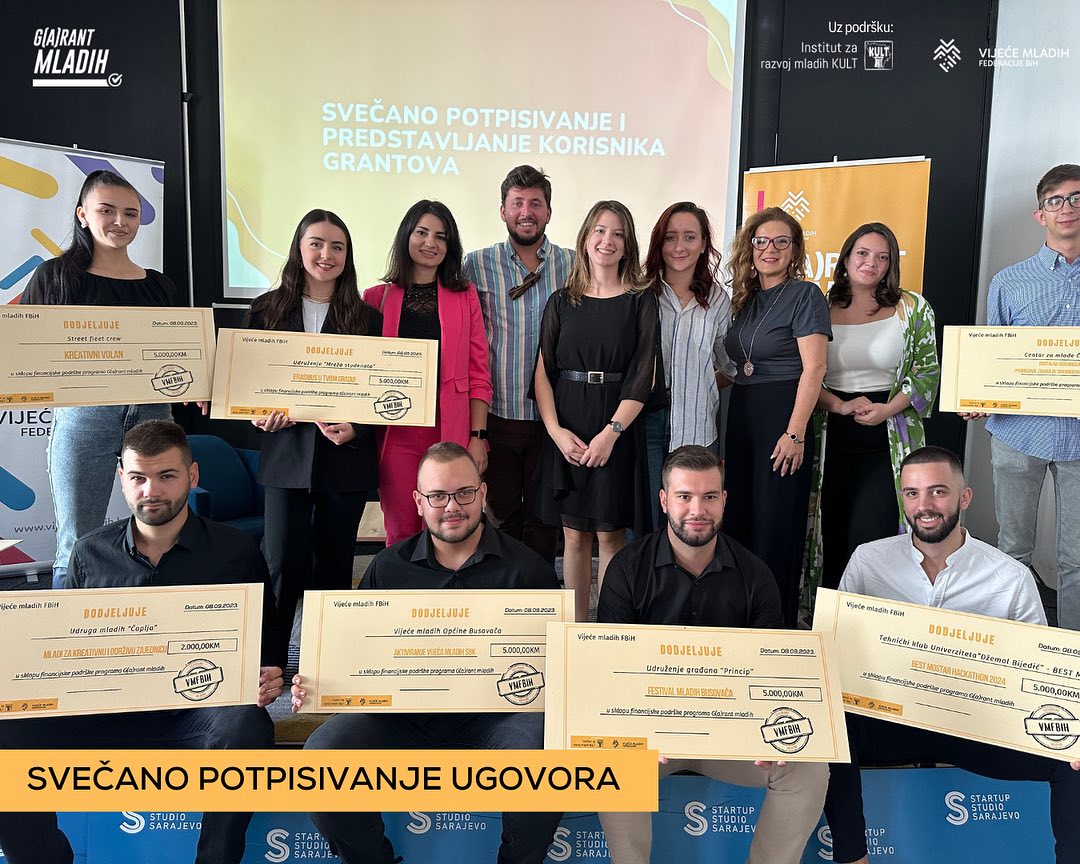The Youth Work Convention in Bosnia and Herzegovina was held in the month of July, and a few hours ago, we concluded the recently announced follow-up event. This event was held in a very engaging and interactive online format and was attended by youth officers, youth workers, youth work practitioners, and young people. The follow-up event was also attended by a representative of the Ministry of Civil Affairs, Mr. Kemal Salić, who shared information about current initiatives and projects that the Ministry is working on.
Why the follow-up?
During the 1st Convention on Youth Work, we came to a series of conclusions and recommendations for young people, government institutions and decision-makers, the wider community, and the youth sector.
Today, we are reviewing those conclusions and recommendations, providing commentary, and discussing any challenges in their implementation. We are ensuring that there is a consensus among all participants on these recommendations and conclusions and determining who should lead the initiatives. The finalized document will be published, made available to the youth sector for reference, and sent to government institutions and umbrella bodies responsible for youth issues.
To achieve this, participants formed four groups. The first group, which considered the recommendations for young people, agreed that 1. The Convention on Youth Work in Bosnia and Herzegovina was a very productive event that yielded a lot of useful insights and lessons.
The group agreed that the previously adopted, concrete recommendations are much clearer and more familiar to young people involved in activism. However, their main focus was on how to reach young people from smaller local communities who are not engaged in activism.
“Young people are motivated to continue with youth work only when they see positive outcomes,” said Slaven Jelić, Youth Officer in Teslić Municipality, emphasizing the importance of reaching out to young people to communicate the recommendations to them.
“Young people often don’t see organizations as places where they can find opportunities, and that perception needs to change,” the group concluded. They emphasized the importance of finding new ways to connect with young people and highlight the benefits of activism, both for individuals and the community. The group stressed the importance of getting out into the community to connect with young people directly. They also highlighted the need to work with schools and universities to introduce students to the non-governmental sector during formal education.
The second group focused on the recommendations and conclusions for government institutions and decision-makers. They concluded that it’s important to develop documents that will integrate youth issues and be important for their future.
Mr. Kemal Salić, representing the Ministry of Civil Affairs, was part of this group. He noted, “Measures and programs for young people need to be based on timely and relevant data. Along with relevant statistical data for developing documents, it is important to have access to comprehensive research conducted by the civil sector, which also must be updated regularly.”
The participants also agreed that aligning the activities of institutions and organizations is necessary. They emphasized the importance of understanding the needs and problems of young people and working collaboratively to address them. Focusing on youth workers, Edisa Demić, representative of the Association “Dignitet,” said, “We need to promote youth officers because many young people are not even aware that youth officers exist or know what their job is.”
The group agreed that youth officers should be promoted using modern communication channels that appeal to young people.
The group dealing with recommendations for the broader community focused on media and innovative promotion methods that resonate with today’s youth.
The group discussing recommendations and conclusions for the youth sector emphasized the importance of regular informative meetings, following the recommendation for organizations to meet, socialize, and communicate more frequently. Marija Babić, a youth officer in the City of Banja Luka, was inspired by the group discussion and suggested, “It would be great if a different organization hosted this meeting every month.”
“A youth worker doesn’t have to be a young person, but they should constantly communicate with other youth workers to share knowledge, experiences, and practices in order to stay connected with young people,” said Anisa Čelik, representative of the Association for Addiction Prevention, NARKO-NE.
The group also discussed how to bridge the gap between the academic community and informal education in the interest of sharing knowledge.
The partnership between the Council of Europe and the European Commission has released three publications on the history and development of youth work. To date, three conventions on youth work have been held at the European level (in 2010, 2015, and 2020), leading to the creation of two declarations on youth work. The third convention also marks the beginning of the Bonn process, which engages the European community in discussing all facets of youth work and outlining concrete steps for implementing the European agenda and programs designed for young people.
While the youth sector in Bosnia and Herzegovina aligns with European programs and activities, including the Bonn process, its implementation within BiH has not yet begun adequately. Many European youth programs in BiH are only partially implemented.
Today’s analysis of conclusions and recommendations from the 1st Convention on Youth Work was an important contribution to improving the lives of youth in BiH. All the groups were extremely proud of their work because it brought us that much closer to addressing the problems of young people in BiH.
















Leave a comment